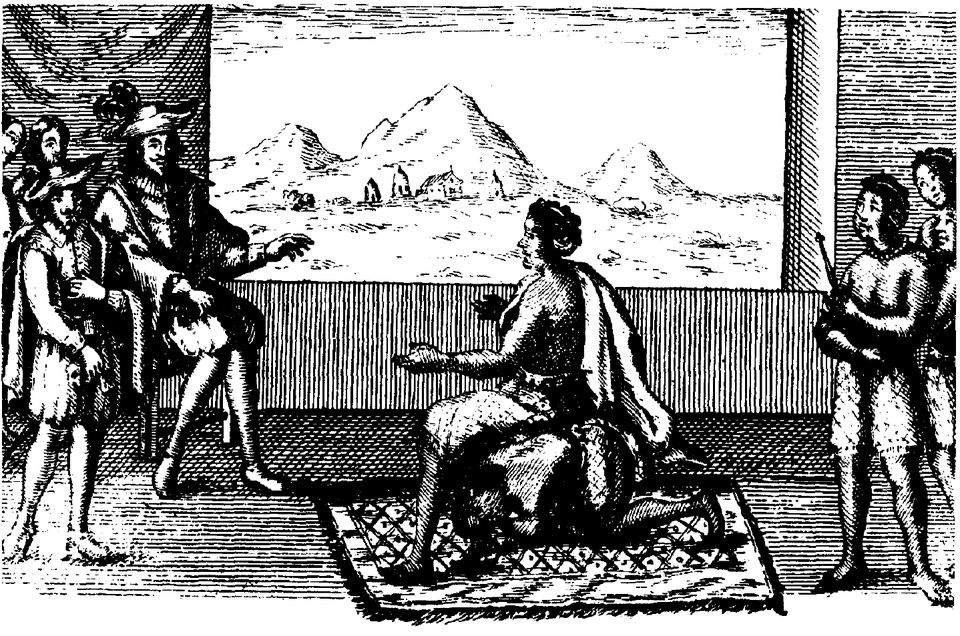What We Review
Introduction
Kinship has always played a central role in shaping the social and political structures of many early West and Central African societies. Specifically, families often included multiple generations living together, working cooperatively, and making decisions as a unit. Consequently, this strong sense of kinship influenced how people formed alliances, conducted trade, and selected their leaders, as seen in the leadership of Queen Nzinga.
Understanding the importance of kinship helps highlight the lives of notable figures such as Queen Idia of the Benin Kingdom and Queen Nzinga (Njinga) of Ndongo and Matamba. Therefore, their leadership styles and legacies continue to inspire discussions on African queens, gender roles, and the power of extended family networks. Moreover, their examples help illustrate how women’s leadership impacted community development and governance.
Today, their stories resonate across Africa and the diaspora, encouraging us to rethink what it means to unify families, communities, and nations under shared values.
Kinship in West and Central African Societies
Kinship refers to the family relationships that bind individuals into larger units. However, in early West and Central African societies, kinship was not limited to the nuclear family. Instead, large family groups, including cousins, aunts, uncles, and grandparents, would pool resources together. These connections often formed the basis for political alliances as well.
How Kinship Shaped Communities
- Family Ties as Community Foundations: Many villages saw the family as the smallest political and economic unit. Members helped each other farm, raise livestock, and share knowledge.
- Collective Decision-Making: Elders typically guided important choices, yet women and younger adults also had a say, ensuring that collective needs were met.
- Marital Alliances: Marriages often strengthened political ties between groups, creating powerful networks of support for trade, defense, and resource sharing.
Hence, these kinship traditions provided a flexible support system. As a result, political structures formed around families rather than distant governing bodies, fostering a strong sense of unity.
Role of Women in Kinship Systems
Women were vital in many of these communities. They served as agriculturalists, educators, and market traders, helping families maintain economic stability. In addition, some women held spiritual leadership roles, leading ceremonies and offering guidance based on ancestral wisdom.
Women often became political advisors, especially when they had strong connections through marriage or family ties. Therefore, their counsel could influence war or peace, shaping the broader region’s future. For example, a grandmother’s teachings could shift how younger generations perceived social duties, ensuring that family values guided those in power.
Women in Political Leadership
Throughout early West and Central Africa, numerous women rose to positions of significant authority. They ruled kingdoms, contributed to military strategies, and served as advisors to male relatives. These roles highlight the versatility of women’s contributions in African societies.
Queen Idia of the Benin Kingdom
Queen Idia was a groundbreaking figure in the Benin Kingdom, located in present-day Nigeria. She became the first iyoba (queen mother) in the late fifteenth century. As a trusted political advisor to her son, King Esigie, she influenced diplomatic relations and military tactics.
Queen Idia’s role as an African queen involved balancing spiritual insight and administrative demands. She also used medicinal knowledge to support her kingdom’s efforts during conflicts. Her influence on trade and societal harmony made her a powerful leader whose guidance helped ensure stability in the Benin Kingdom.
Queen Nzinga of Ndongo and Matamba
Queen Nzinga, also spelled “Njinga,” ruled Ndongo and Matamba in the early seventeenth century. Located in present-day Angola, these kingdoms faced constant threats from Portuguese colonizers. Nzinga employed clever military and diplomatic strategies, using trade negotiations and alliances to protect her people.
She is often remembered for her guerrilla warfare tactics, which allowed her to outmaneuver stronger armies. Furthermore, to strengthen her domain, she participated in the Atlantic slave trade, using wealth acquired from it to build alliances and amass influence. Her leadership ensured that Ndongo and Matamba remained significant and independent for many decades.
Comparing Queen Idia and Queen Nzinga
Examining both Queen Idia of the Benin Kingdom and Queen Nzinga of Ndongo and Matamba reveals how women used their kinship ties, spiritual understanding, and strategic skills to govern effectively.
Political Strategies and Leadership Styles
- Queen Idia: Relied on familial bonds and spiritual power within the Benin Kingdom to shape policy. As iyoba, she guided the king on warfare and governance.
- Queen Nzinga: Exerted direct military leadership and engaged in diplomatic partnerships. She also formed alliances with other African groups, leveraging trade to fortify her rule.
Transitioning between diplomatic talks and military action demonstrated their ability to balance various methods of maintaining power.
Military Engagements and Warfare
- Queen Idia: Called upon medicinal knowledge and spiritual rituals to protect the Benin Kingdom. Many believed her spiritual resources provided extra defense against enemies.
- Queen Nzinga: Led a 30-year guerrilla campaign against Portuguese colonizers. She protected her domain by offering sanctuary to those escaping enslavement, thereby growing her army.
Both women showed adaptability and determination, using creativity to overcome challenges when defending their people. Therefore, their leadership had far-reaching effects.
Legacy of Queen Idia and Queen Nzinga
The legacies of Queen Idia and Queen Nzinga stretch beyond their regions, continuing to serve as inspiration for leadership roles among women in Africa and the global diaspora.
Queen Idia’s Enduring Symbol
Queen Idia’s image has become famous for representing the strength of Black women’s leadership. An ivory mask depicting her face was chosen in 1977 as the symbol for FESTAC (the Second World Black Festival of Arts and Culture). This celebration showcased African art and culture to the world, highlighting Queen Idia’s influence and the importance of women’s contributions across African history.
Meanwhile, today, the symbol of the African queen remains a powerful inspiration for those studying AP® African American Studies, as it reminds students that female governance has ancient and respected roots in African societies.
Queen Nzinga’s Long-Lasting Inspiration
Queen Nzinga’s reign continued to impact her kingdom even after her lifetime. Her strategies and diplomatic methods led to nearly 100 years of additional women rulers in Matamba. Consequently, her example of combining political negotiation with military force resonates today.
In modern conversations on governance and gender equality, Queen Nzinga’s achievements remind learners that strong leadership can thrive even under challenging colonial pressures. Undoubtedly, students discovering her story gain a deeper understanding of how resourcefulness and kinship ties can protect a nation’s future.
The Significance of Kinship and Leadership Today
Additionally, kinship remains a powerful force in modern society. Although many nations now rely on central governments, the concept of extended family networks stays relevant. Homes often include grandparents, cousins, or other relatives who pool resources and nurture each other’s aspirations.
Today’s movements for women’s empowerment also echo the resolute leadership displayed by Queen Idia and Queen Nzinga. By recognizing how these leaders drew on kinship bonds, individuals can understand how families—and broader communities—can champion women who wish to serve in political, social, or economic roles.
Beyond Africa, communities worldwide can draw inspiration from strong kinship traditions when creating more inclusive societies. Therefore, bringing these historical examples into high school studies can foster deeper discussions about culture, collaboration, and the role of women in shaping kingdoms or modern institutions.
Required Sources
Image of Queen Mother Pendant Mask: Iyoba, Sixteenth Century
Historical Context: This model of an ivory pendant mask likely represents Queen Idia, marking her extraordinary status and spiritual power. Created in the sixteenth century in the Benin Kingdom, it shows the intricate carving style that made Benin art famous.
Relevance and Impact: The mask underscores how art served as a political and cultural symbol. Since its reintroduction at FESTAC in 1977, it has reminded people of the significant influence held by Queen Idia and the Benin Kingdom. It demonstrates the importance of women who guided their societies during both peacetime and conflict.
Illustration of Queen Nzinga, Seventeenth Century
Historical Context: Illustrations of Queen Nzinga in the seventeenth century highlight her regal attire and strategic posture. They emerged as European observers documented her diplomatic and military capacities, especially in negotiations with Portuguese colonizers.
Relevance and Impact: These images represent the perception of an African queen who stood resilient against European encroachment. They also serve as a window into how her use of kinship ties and alliances preserved the kingdoms of Ndongo and Matamba. She remains emblematic of sovereignty and strength for those studying African history, especially in AP® African American Studies.
Quick Reference Chart: Key Vocabulary and Definitions
| Term | Definition |
| Kinship | A social relationship based on family ties, which influences communities and politics. |
| Queen Idia | The first iyoba (queen mother) in the Benin Kingdom, known for her political advisory role. |
| Benin Kingdom | A historical empire in present-day Nigeria, renowned for its art and advanced political structure. |
| Queen Nzinga | The queen of Ndongo and Matamba (present-day Angola), known for her military leadership and diplomacy. |
| Iyoba | A title meaning “queen mother” in the Kingdom of Benin. |
| Guerrilla Warfare | A form of irregular warfare using ambushes, surprise attacks, and mobility to outmaneuver enemies. |
| Legacy | The lasting impact or influence of a person’s actions or leadership over time. |
| African Queen | A term that captures the revered status of women rulers or leaders in African societies. |
Conclusion
Kinship, which unites extended family members into cohesive communities, played a defining role in early West and Central African societies. Within these communal networks, leaders such as Queen Idia and Queen Nzinga harnessed their positions to guide their people through both peace and warfare. Their examples prove that women contributed immeasurably to politics, economics, and defense, all while relying on robust kinship ties.
Reflecting on these African queens underscores how cultural values and family-based alliances can uplift women in leadership. Consequently, Queen Idia’s influence in the Benin Kingdom and Queen Nzinga’s strategies in Ndongo and Matamba continue to inspire students today. They highlight how perseverance, shared bonds, and visionary thinking can shape the future. Moreover, their stories encourage further exploration of how to build inclusive communities that honor family heritage while embracing individuals’ full potential.
Sharpen Your Skills for AP® African American Studies
Are you preparing for the AP® African American Studies test? We’ve got you covered! Try our review articles designed to help you confidently tackle real-world AP® African American Studies problems. You’ll find everything you need to succeed, from quick tips to detailed strategies. Start exploring now!
Need help preparing for your AP® African American Studies exam?
Albert has hundreds of AP® African American Studies practice questions, free response, and full-length practice tests to try out.










